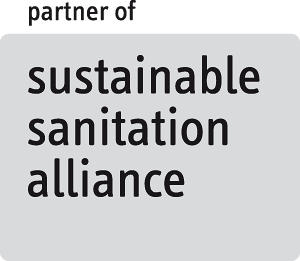
Frequently Asked Questions
Find out more about who we are, what we do, and how you can get involved




What is the aim of SLH?
We are aiming to promote and facilitate timely, relevant and actionable learning and research in the sanitation and hygiene sector.
How is SLH trying to achieve this aim?
We try to achieve our aims by:
- Co-convening global, regional and thematic workshops for reflecting, sharing and learning.
- Innovating ‘Rapid Action Learning’ (RAL) participatory approaches and methodologies.
- Co-producing action-orientated research, publications and tools.
- Providing timely digital communications via our website, newsletter and social media.
Who is SLH funded by?
The Sanitation Learning Hub is a four-year programme funded by Sida.
Where is SLH based?
The SLH team are based at the Institute of Development Studies (IDS) in the UK.
SLH are part of the Participation, Inclusion and Social Change research cluster at IDS, who have a long history of working on participatory methods.
How can I use the SLH website?
Practical Support – here you can find out about “combinable” practical tools and approaches.
Current Thinking – this section offers introductions and resource collections on key issues, including publications produced by SLH and others in the sector.
Connect, Share, Learn – read blogs, practitioner voices stories, and find out about us and our workshops and events.
You can watch our website walk-through video here: https://youtu.be/zK1fiICE95M
Do you have any partners?
We don’t have any official research partners, but we do have strong relationships with colleagues in the sanitation and hygiene sector, regularly working with UNICEF, WaterAid and others. You can find out about our collaborators here, who have worked with us on research projects and authored publications and blogs.
We are interested in making new relationships with research institutes, rights holder organisations and WASH NGOs. Please do email us on [email protected] if you have an idea for how we could work together.
We are an affiliated partner of SuSanA (Sustainable Sanitation Alliance).
Can SLH fund my organisation?
Generally, SLH is not a funding organisation. We occasionally offer funding for research projects and consultancies. You can see our current opportunities on our announcements page.
How can I work with SLH?
We often release calls for proposals on specific topics. You can see our current opportunities on our announcements page.
Can I write a blog for SLH?
Yes – you can find more information about writing a blog for us on our blog idea submission page.
Can I suggest resources for the SLH website?
Yes, we welcome suggestions for resources we could add to the website. You can find out more about the criteria on our resource suggestion page. We can also share resources via our social media channels where appropriate.
What kind of research methods does SLH use?
SLH focuses on participatory and action-oriented methods, you can find out more on our SLH research and learning page.
Does SLH offer printed copies of their publications?
Yes – please do get in touch with us on [email protected] if your organisation is interested in receiving free printed copies
Why did the CLTS Knowledge Hub change to the Sanitation Learning Hub?
Started in 2006, the CLTS Knowledge Hub primarily focused on facilitating learning and sharing on the CLTS approach across the sector. However, in response to the increasingly complex WASH landscape, we realised we needed a broader, more flexible approach to learning within the sector that could better adapt to meet this complexity.
The past 10 years have shown us that nuanced, tailored and adaptive approaches are essential to successfully support everyone, everywhere claim their right to safely managed sanitation. National and sub-national contexts shift and vary, and societies comprise diverse individuals and households with different needs, capacities and priorities. Experience has shown that just using a single, static approach at scale over long periods (for example, only using CLTS) does not always work: they do not reach everyone and often struggle to achieve sustainability and movement up the sanitation ladder.
To enable programmes to be designed to reach and meet the needs of everyone across entire areas, a thorough understanding of the context(s) is essential. Using an approach such as context analyses enables teams to select appropriate implementation approaches and partners - it is likely that multiple approaches and partners will be required in any one area, and that these will need to be adapted and combined in different ways.
This evidence-based approach will also help identify communities and individuals at risk of being left behind. We have much to learn about how best to do this and programmes must remain flexible so that they can be adapted based on monitoring, evaluation and learning (MEL) as well as changing contexts.
Building strong MEL systems and rapid action learning (RAL) processes into programmes will support this process, helping to identify what works and what does not throughout every stage of the programme, and enabling adaptation and course correction. Investing in staff and institutional capacity to pivot, adapt and work with multiple approaches and partners is also key.
In January 2019, after a period of consultation with critical friends and peers in the sector, we decided on a strategy which set out our commitment to context specific and adaptive learning. The decision was made to commit to the shift with a new name, ‘The Sanitation Learning Hub’, with a new brand, and a new website.
Our learning on CLTS and other community-led approaches has been crystalised on our new site.
